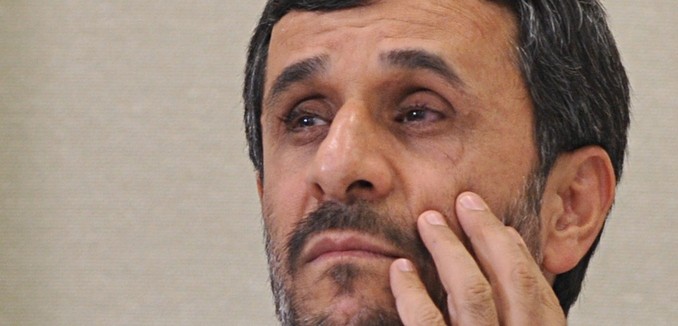The expected arrival of Mahmoud Ahmadinejad in Cairo – the first of an Iranian president since the 1979 Islamic Revolution – has the air of a historic occasion. After 32 years of diplomatic disconnect between the two countries – initiated by Iran after Egypt made peace with Israel – an Iranian leader is arriving in Cairo for the first time.
The visit has and will continue to raise a number of nonplussed reactions from Israel and the Arab world about Egypt’s Muslim Brotherhood-led government growing closer to Iran’s “Axis of Resistance.” A bit of restraint is in order.
First, the Iranian leader is arriving under the auspices of the Organization for Islamic Cooperation, and most other Muslim countries will be in attendance. Second, and perhaps most important, the show of affection put on by both presidents – Ahmadinejad and Egypt’s Mohammed Morsi – will do little to hide deep animosity between the two countries, and between the Sunni Muslim Brotherhood and Iran’s Shiite theocracy.
Morsi’s victory in Egyptian presidential elections has paved the way for a certain thawing in relations. Still the consensus remains among the leaderships of most Sunni countries – Jordan, Saudi Arabia, the Gulf, and Turkey – that Iran remains the greatest threat to their states’ security. Their foreign policy is driven much more by fear of Iran than, for instance, by fear of Israel.
Egyptian intelligence officials have certainly reported to their president that the Revolutionary Guard has moved to get a toehold in the Sinai Peninsula, and to use it as a platform for smuggling weapons into Gaza. Those smuggling attempts continue. Israel would, of course, like to see Egyptian activity to halt that smuggling, and a total cessation of arms movements from Sinai and Sudan into Egypt proper. Nnetheless Egypt is doing more in the Brotherhood era to deal with weapons smuggling than it ever has before. Recently there has been a detectable drop in the transfer of advanced weapons – partly due to the efforts of the Egyptian military. So while Ahmadinejad meets this week with Egyptian leaders, Egypt’s intelligence officials will continue nurturing security cooperation with their Israeli counterparts.
The regional proxy war being waged inside Syria presents another stumbling block to rapprochement. Cairo doesn’t hide its hostility towards Iran’s alliance with Syria’s ruler Bashar al-Assad, and Egyptian diplomats are still deciphering Iran’s motive in holding very public negotiations with the official Syrian opposition. Iranian Foreign Minister Ali Akbar Salehi said this week that the talks he held Sunday with Moaz al-Khatib – a Muslim Brother who heads the National Coalition for Syrian Revolutionary and Opposition Forces – were extremely positive and would continue.
It’s hard to assess just how much Tehran’s line has changed. It’s possible that in the Iranian capital they are already preparing for Assad’s demise, and are looking to leverage their existing ties to the crumbling regime to give them a voice in post-Assad Syria. Khatib and his coalition had already backed down from their demands to put Assad on trial, and have now declared their willingness to negotiate with Assad deputy Farouk al-Sharaa on a transition.
[Photo: Marcello Casal Jr / Wiki Commons]




